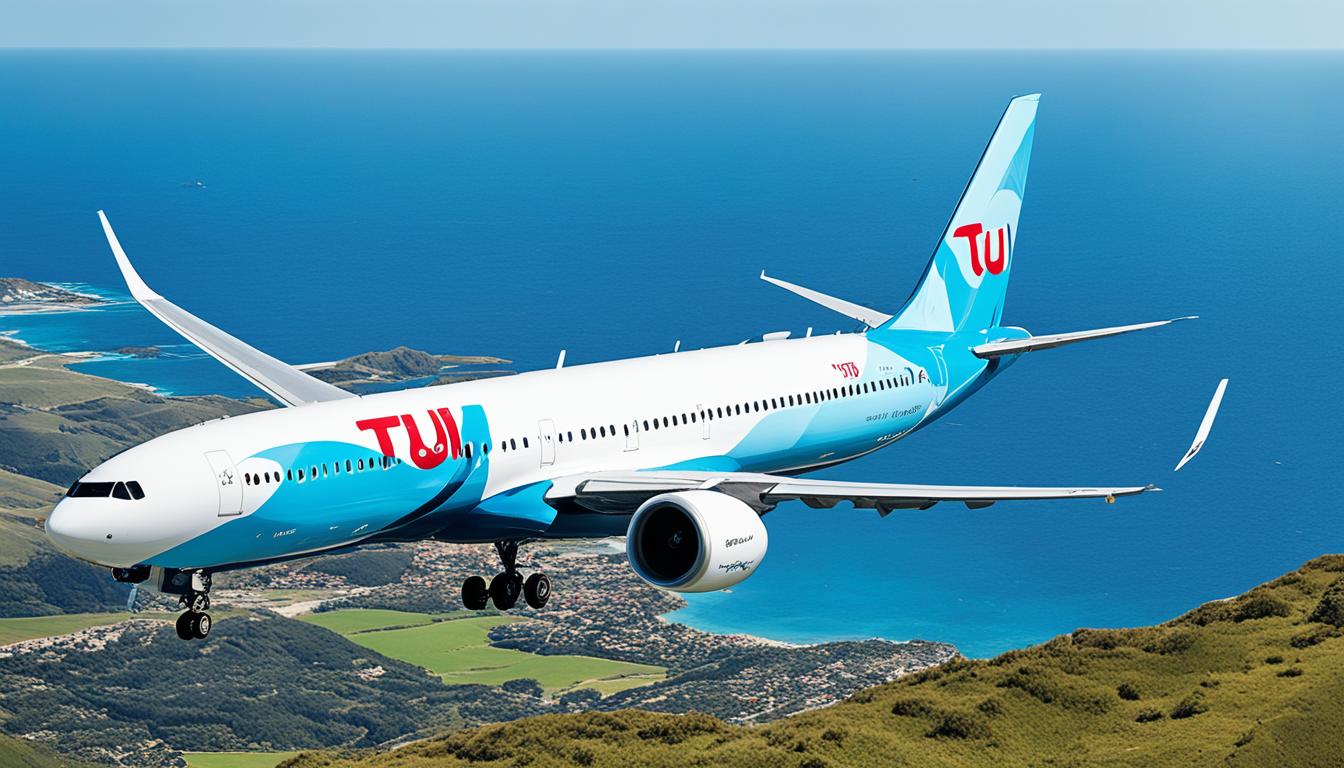In 2024, the landscape of network and technology solutions is markedly shaped by a diverse array of Cisco competitors. Cisco, a California-based technology behemoth founded in 1984, has reached a substantial FY 2023 revenue of $57.0 billion, excelling in networking hardware and telecommunications equipment. However, the market is dynamic, with established entities and innovative startups continually challenging Cisco’s dominance.
As Cisco navigates this competitive analysis, it faces significant challenges from prominent network equipment rivals and technology industry adversaries. These competitors are pushing the frontiers of digital technology and secure connectivity, thus creating a spirited environment where adaptability and continuous innovation are crucial.
Introduction to Cisco’s Position in the Market
Cisco Systems Inc. has long been a prominent figure in the networking industry, pioneering internetworking solutions that have become the backbone of global Internet traffic. With around 85% of the world’s Internet traffic passing through Cisco systems, its technological advancements and extensive product portfolio have cemented its status as a leader. However, the emergence of top cisco competitors has spurred the company to adapt and innovate. As of 2023, Cisco boasts a market cap of $199 billion, yet faces mounting pressure from rivals offering advanced networking, cloud, and software technologies.
Among the noteworthy cisco alternatives are Juniper Networks, HPE Aruba, Huawei, and others that have seized market share in regions traditionally dominated by Cisco. This encroachment by top cisco competitors has necessitated ongoing strategic evolutions and acquisitions to maintain Cisco’s competitive edge. For instance, Cisco’s acquisitions of OpenDNS and Acacia demonstrate its proactive approach to expanding its service capabilities and addressing burgeoning market demands.
Given the dynamic nature of the technology sector, Cisco’s focus remains on diversifying its portfolio and enhancing the interoperability of its solutions. The mission to stay ahead requires continuous innovation, particularly in areas where cisco alternatives are gaining traction. By leveraging its longstanding expertise and investing in cutting-edge technologies, Cisco aims to sustain its leadership while navigating the competitive landscape marked by various formidable top cisco competitors.
Juniper Networks: A Powerhouse in Networking Solutions
Juniper Networks, established in 1996 and headquartered in Sunnyvale, California, has consistently emerged as one of the formidable competing companies against Cisco. The company’s offerings, including advanced network routers, security appliances, and comprehensive software solutions, are highly sought after in the networking industry. Juniper’s commitment to addressing complex customer challenges with optimized performance products makes it a strong contender in the market.
Overview of Juniper Networks
Founded in 1996, Juniper Networks has grown to become a prominent player in the networking sector. With a robust revenue of $1.430 billion and a market cap of $9.16 billion by mid-2023, the company employs approximately 10,901 individuals. Juniper’s focus on innovation and excellence in networking technologies positions it as a significant challenger to Cisco’s market dominance.
Juniper’s Key Products and Services
Juniper Networks excels in offering an array of key products and services that cater to the evolving needs of modern enterprises. Their portfolio includes:
- High-performance network routers
- Advanced security appliances
- Comprehensive network management software
- Switches and data center solutions
Such an extensive range of solutions enables Juniper to address various networking requirements, thereby standing out among Cisco market contenders.
Market Performance and Competitive Edge
Juniper Networks has achieved a commendable market performance, characterized by a strategic focus on optimizing network performance and security. This has allowed it to carve out a niche among competing companies against Cisco. Juniper’s competitive edge lies in its dedication to innovation and delivering tailored solutions that meet the nuanced demands of different markets, ensuring its place as a significant player in the competitive landscape.
Alcatel-Lucent: Innovation in Telecommunications
Alcatel-Lucent, a renowned French telecommunication equipment company, seamlessly integrates innovative infrastructure solutions with cutting-edge communication technology to meet digital connectivity demands. Specializing in networking hardware, software, and IP technologies, the company emerges as a formidable player among Cisco market contenders.
With a global presence, Alcatel-Lucent serves over 830,000 customers across 130 countries. The company’s extensive patent portfolio underscores its commitment to advancing communication technology. By enhancing network integration and intelligence, Alcatel-Lucent strengthens its standing against Cisco market contenders.
Alcatel-Lucent’s dedication to innovation has enabled them to develop robust solutions that cater to a diverse range of connectivity needs. This drive fuels their competitive edge in the telecommunications market, ensuring a significant presence among other cisco market contenders.
In a rapidly evolving digital landscape, Alcatel-Lucent continues its focus on groundbreaking technologies, further consolidating its position as one of the most substantial cisco market contenders, rivalling traditional market leaders.
HP Enterprise: A Broad Scope of IT Solutions
HP Enterprise (HPE), an industry giant with roots tracing back to 1939, offers an expansive range of IT hardware and software solutions. These solutions encompass personal computers, networking hardware, and a host of services aimed at different sectors. HPE’s significant investments in data storage, servers, and networking products create robust opportunities for those seeking cisco alternatives.
HP’s Role in Networking
HP Enterprise plays a pivotal role in the networking arena. The firm’s comprehensive portfolio includes advanced networking hardware designed to meet the increasingly complex needs of modern businesses. By leveraging its well-established infrastructure and continuous innovation, HPE remains a formidable force against competing companies against cisco.
Products and Services Competing with Cisco
HPE’s catalog of products is a diverse assortment that ranges from high-performance servers to cutting-edge data storage solutions. Particularly noteworthy are their networking products, which are direct cisco alternatives. Their solutions like the ProLiant servers and StoreOnce data recovery systems ensure that HPE can provide comprehensive IT solutions that challenge Cisco’s dominance.
HP’s Market Impact
HP’s market impact is underscored by its significant financial metrics, including a market cap of $30.93 billion and substantial net income reported for Q2 2023. The company’s direct-to-customer sales strategy and diverse product offerings solidify its place among the top competing companies against cisco. By continuously adapting to the dynamic technology landscape, HPE maintains its competitive edge, ensuring its resilience and sustained market presence.
Aruba Networks: Focus on Wireless Networking
Aruba Networks, now known as HPE Aruba, has concentrated its efforts on wireless networking solutions, establishing itself as one of the top cisco competitors. The integration of Silver Peak’s SD-WAN technologies has significantly fortified Aruba’s competitive stance, enabling it to secure major contracts such as a critical Pentagon deal previously held by Cisco.
By prioritizing the enhancement of wireless networking services, Aruba Networks has achieved notable market recognition, including its visionary status in Gartner’s WAN Edge Infrastructure report. This achievement highlights Aruba’s role in shaping the networking market landscape, proving its capability to rival other top cisco competitors effectively.
Moreover, Aruba Networks continues to expand its technological capabilities, addressing the evolving needs of wireless networking across both enterprises and service providers. This strategy underpins its enduring prominence as a formidable competitor in the dynamic and competitive networking industry.
Huawei: Global Giant in ICT Solutions
Huawei stands as a formidable force among Cisco competitors in the global ICT landscape. Operating in over 170 countries, Huawei has a diverse portfolio which includes telecommunications equipment, consumer electronics, and numerous cloud computing services.
Huawei’s Range of Products
Huawei’s extensive product range features networking equipment, smartphones, and cloud technologies. By leveraging advanced 5G innovations, the company has secured a robust position in global markets. Its extensive lineup serves as a critical component in maintaining its edge over various cisco market contenders.
Huawei’s Market Strategy
To effectively compete with cisco competitors, Huawei has adopted an aggressive market strategy, emphasizing research and development and strategic collaborations. Despite geopolitical challenges, the company’s investment in cutting-edge technology and AI-driven solutions underpins its resilience and long-term growth potential.
Challenges and Opportunities
Even as Huawei navigates significant hurdles, such as regulatory constraints and supply chain disruptions, it continues to explore opportunities in emerging markets and diverse ICT solutions. These efforts not only strengthen its market presence but also position it as a key player among cisco market contenders. With a commitment to innovation and customer-centric solutions, Huawei remains a critical participant in the highly competitive ICT sector.
Arista Networks: Leader in Cloud Networking
Arista Networks underscores its prominence by excelling in cloud networking solutions tailored for data centers and computing environments. The company delivers high-quality cloud networks that excel in energy efficiency, facilitated by an extensive suite of software-defined networking (SDN) solutions.
One of Arista’s key strengths lies in its impressive increase in switch market share, showcasing its growing influence within the realm of cloud-based networking. The company is well-positioned to seize opportunities in the market, continually asserting itself against numerous technology industry adversaries.
With an optimistic growth outlook and a steady trajectory of innovation, Arista Networks is carving a niche for itself amidst the competitive landscape. As technology industry adversaries continue to emerge, Arista’s robust strategies and cutting-edge solutions ensure it remains a pivotal player in the sector.
Extreme Networks: Advanced Machine-learning Functionality
Extreme Networks has positioned itself as a critical player in the networking solutions market by focusing on cloud-based networking and advanced machine-learning functionalities. With a strategic emphasis on serving both SMBs and large enterprises, the company stands out through its innovative approach and competitive strength.
Overview of Extreme Networks
Founded in 1996, Extreme Networks has grown consistently, offering a variety of networking products and services. The company has built a reputation for delivering high-performance network infrastructure solutions, incorporating advanced technologies to meet the diverse needs of its clients. Through its acquisitions, including Aerohive Networks, Extreme Networks has expanded its technological capabilities and broadened its market reach.
Competitive Analysis Against Cisco
When performing a competitive analysis of Cisco, it’s evident that Extreme Networks has fortified its position by integrating machine-learning capabilities into its cloud-based solutions. These innovations enable efficient and more secure data handling, providing a substantial edge. Extreme Networks also places a significant focus on data security, another critical area where it rivals Cisco’s offerings.
Future Directions and Innovations
Looking ahead, Extreme Networks aims to further leverage AI and machine-learning technologies to enhance its product offerings. Future advancements are expected to include more intelligent networking solutions capable of self-managing and self-optimizing. This forward-thinking approach signifies Extreme Networks’ dedication to staying competitive in the rapidly evolving IT landscape, continuing to challenge Cisco through constant innovation.
Overall, the competitive analysis cisco reveals that Extreme Networks is a formidable adversary, consistently pushing technological boundaries to remain at the forefront of the networking industry.
VMWare: Pioneering Virtualization and Cloud Solutions
VMWare stands at the forefront of virtualization and cloud computing, firmly positioning itself among competing companies against Cisco. Known for revolutionizing software-defined networking, VMWare offers robust solutions in SD-WAN technologies.
With their extensive deployment of SD-WAN across numerous branch offices, VMWare has become a significant challenger to Cisco. Businesses across the globe have adopted VMWare’s advanced cloud solutions, capitalizing on their innovative technology to enhance network efficiency and security.
As one of the leading competing companies against Cisco, VMWare continues to leverage its expertise in virtualization to push the boundaries of digital transformation. Their consistent advancements in cloud solutions and strategic collaborations enable them to maintain a competitive edge in the industry.
In conclusion, VMWare’s influential market presence and strategic focus on cloud and virtualization solutions underscore their pivotal role among the top competing companies against Cisco. By constantly driving innovation, VMWare secures its status as a key player in modern SD-WAN and virtualization domains.
Dell Technologies: Dominance in External Storage Systems
Dell Technologies excels in multiple ICT verticals, with a prominent strength in external storage systems. This dominance is particularly evident in their hyper-converged systems, which have garnered significant market share and outperform several industry competitors, including Cisco.
Dell’s Product Offerings
Dell Technologies boasts a comprehensive range of products that cater to various technology and storage needs. Their portfolio includes high-performance servers, data storage solutions, and hyper-converged infrastructure, which doubles the offerings of many competitors. This extensive range positions Dell as a leading provider of ICT solutions, offering robust cisco alternatives to the market.
Market Leadership and Innovations
In terms of market leadership, Dell Technologies is recognized for its continuous innovations and advancements in storage solutions. The company’s investment in R&D has resulted in cutting-edge products that address contemporary IT challenges effectively. These innovations not only solidify Dell’s market position but also provide customers with reliable and scalable storage solutions.
Dell vs. Cisco: Competitive Dynamics
When comparing Dell Technologies to top cisco competitors, it’s clear that Dell’s broad product range and market innovations present formidable competition. Dell’s leadership in external storage systems and hyper-converged infrastructure creates a dynamic rivalry in the technology market. While Cisco has a strong presence in networking hardware and telecommunications, Dell’s comprehensive ICT solutions and strategic market positioning offer compelling cisco alternatives that challenge Cisco’s influence across various sectors.
NETGEAR: Reliable Networking for Enterprises and Consumers
NETGEAR has carved out a significant niche in the networking market by offering solutions that cater both to enterprise environments and individual consumers. Known for its robust range of products, the brand features popular Nighthawk routers, switches, and network storage solutions. This diverse portfolio places NETGEAR among the notable cisco market contenders, addressing the needs of small to medium businesses (SMBs) as well as home users.
One of the key differentiators for NETGEAR is its focus on versatility, catering to a wide array of users with its easy-to-deploy solutions. While Cisco typically gears its offerings towards large enterprises, NETGEAR delivers products that support both high-end enterprise systems and consumer-grade applications. This flexibility helps NETGEAR maintain a competitive edge, further establishing its reputation among cisco market contenders.
Moreover, NETGEAR’s extensive investment in innovative technology and user-friendly design has reinforced its standing as a reliable brand. With ongoing advancements in wireless technology and network security, NETGEAR continues to evolve, building solutions that respond dynamically to modern connectivity demands. These consistent efforts underscore why NETGEAR remains a significant force among cisco market contenders in today’s fast-paced networking landscape.
Analysis of Cisco Competitors in the Networking Industry
A thorough competitive analysis cisco reveals a dynamic landscape populated by both established giants and emerging niche players. These cisco competitors contribute significantly to the industry’s technological advancements, driving forward innovations in networking, security, and cloud services. The ecosystem is characterized by highly aggressive market strategies, regular mergers and acquisitions, and a continuous drive for technological excellence.
The competitive dynamics require companies to stay agile and innovative. From industry heavyweights like Juniper Networks and Huawei to specialized firms such as Arista and Extreme Networks, the diversity in capabilities and market approaches presents a robust challenge. This environment compels Cisco to continuously evolve its product offerings and strategic initiatives to maintain its market leadership.
- Juniper Networks
- Arista Networks
- Huawei
- Extreme Networks
In conclusion, the competitive analysis cisco landscape within the networking industry remains intensely competitive, with each competitor pushing the boundaries of innovation. This necessitates continuous strategic evolution from Cisco to maintain and enhance its leadership position.
Conclusion
In navigating the complex landscape of network equipment rivals and technology industry adversaries, Cisco remains a formidable entity, successfully leveraging its extensive history of innovation and strategic foresight. As the market continues to evolve, driven by rapid technological advancements and a surge of competitive pressure, Cisco’s ongoing efforts in development and strategic alliances underscore its commitment to maintaining market leadership.
The presence of robust competitors such as Juniper Networks, Huawei, and HP Enterprise showcases the dynamic nature of the industry, each posing unique challenges to Cisco’s market hegemony. These rivals, with their own innovations and market strategies, push the envelope of what’s possible in networking technology. This relentless competition compels Cisco to not only innovate continuously but also to anticipate and adapt to emerging trends and developments to stay relevant.
Ultimately, Cisco’s ability to sustain its dominance amidst burgeoning competitors hinges on its strategic agility and innovation prowess. The company’s unwavering focus on enhancing its product offerings and forming strategic partnerships allows it to navigate the competitive landscape effectively. As Cisco continues to confront and address the multifaceted challenges posed by its network equipment rivals, its resilience and forward-thinking approach ensure its significant standing in the technology industry remains unshaken.
FAQ
Who are Cisco’s main competitors in the network equipment industry?
What makes Juniper Networks a significant competitor to Cisco?
FAQ
Who are Cisco’s main competitors in the network equipment industry?
Cisco’s main competitors include Juniper Networks, Alcatel-Lucent, HP Enterprise, Aruba Networks, Huawei, Arista Networks, Extreme Networks, VMWare, Dell Technologies, and NETGEAR.
What makes Juniper Networks a significant competitor to Cisco?
Juniper Networks, with its robust portfolio including network routers, security appliances, and software, is known for optimized performance products that address complex customer problems, making it a formidable competitor to Cisco. The company boasts a significant market presence with a revenue of
FAQ
Who are Cisco’s main competitors in the network equipment industry?
Cisco’s main competitors include Juniper Networks, Alcatel-Lucent, HP Enterprise, Aruba Networks, Huawei, Arista Networks, Extreme Networks, VMWare, Dell Technologies, and NETGEAR.
What makes Juniper Networks a significant competitor to Cisco?
Juniper Networks, with its robust portfolio including network routers, security appliances, and software, is known for optimized performance products that address complex customer problems, making it a formidable competitor to Cisco. The company boasts a significant market presence with a revenue of $1.430B and a market cap of $9.16B as of mid-2023.
How does Alcatel-Lucent compete with Cisco in the telecommunications sector?
Alcatel-Lucent specializes in innovative infrastructure solutions combined with communications technology, catering to digital connectivity needs. With over 830,000 customers across 130 countries and a strong patent portfolio, Alcatel-Lucent commands a prominent market position against Cisco.
What are HPE’s competitive advantages in the networking industry?
HP Enterprise (HPE) offers a wide range of hardware and software solutions, including significant investments in data storage, servers, and networking products. With a notable market cap of $30.93B, HP’s direct-to-customer sales strategy and diverse product lineup highlight its competitive stance against Cisco.
Why is Aruba Networks a key competitor in wireless networking?
HPE Aruba, focusing on wireless networking, stands out due to its efforts in integrating Silver Peak’s SD-WAN technologies, capturing significant contracts, and its recognition as a visionary in Gartner’s WAN Edge Infrastructure report, positioning it as a dynamic competitor to Cisco.
What challenges and opportunities does Huawei face in competing with Cisco?
Huawei faces challenges, including significant net profit declines, but remains a global powerhouse in ICT solutions. Operating in over 170 countries with diverse products and cloud technology, Huawei’s expansive operations make it a top competitor to Cisco.
How does Arista Networks position itself as a leader in cloud networking?
Arista Networks focuses on cloud networking solutions for data centers and computing environments. Its high-quality, energy-efficient cloud networks and software-defined networking (SDN) solutions have solidified its role as a major player in cloud-based networking.
What innovative functionalities does Extreme Networks offer compared to Cisco?
Extreme Networks specializes in advanced machine-learning functionalities and cloud-based networking solutions tailored for SMBs and large enterprises. Acquisitions like Aerohive Networks have bolstered its capabilities against Cisco’s offerings, competing strongly in data security and technical innovation.
In what sectors does VMWare compete with Cisco?
VMWare competes with Cisco in software-defined WAN (SD-WAN) technologies and other IT sectors. VMWare’s significant influence in the market is evident through extensive SD-WAN deployments, making it a key competitor, especially in the enterprise sector.
How does Dell Technologies challenge Cisco’s market position?
Dell Technologies excels in external storage systems, with a dominant market share in hyper-converged systems, doubling that of Cisco’s. Dell’s comprehensive product range in storage and server industries highlights its competitive dynamics against Cisco.
What differentiates NETGEAR from Cisco in the networking market?
NETGEAR targets both enterprise and consumer markets with products like Nighthawk routers, switches, and network storage solutions. Its differentiating factor lies in its array of products suitable for SMBs and home use, contrasting Cisco’s more enterprise-centric focus.
What are the primary market strategies of Cisco’s competitors?
Cisco’s competitors employ aggressive market strategies, including mergers and acquisitions, relentless innovations, and direct-to-consumer approaches to capture market share and challenge Cisco’s dominance in the networking and technology industry.
.430B and a market cap of .16B as of mid-2023.
How does Alcatel-Lucent compete with Cisco in the telecommunications sector?
Alcatel-Lucent specializes in innovative infrastructure solutions combined with communications technology, catering to digital connectivity needs. With over 830,000 customers across 130 countries and a strong patent portfolio, Alcatel-Lucent commands a prominent market position against Cisco.
What are HPE’s competitive advantages in the networking industry?
HP Enterprise (HPE) offers a wide range of hardware and software solutions, including significant investments in data storage, servers, and networking products. With a notable market cap of .93B, HP’s direct-to-customer sales strategy and diverse product lineup highlight its competitive stance against Cisco.
Why is Aruba Networks a key competitor in wireless networking?
HPE Aruba, focusing on wireless networking, stands out due to its efforts in integrating Silver Peak’s SD-WAN technologies, capturing significant contracts, and its recognition as a visionary in Gartner’s WAN Edge Infrastructure report, positioning it as a dynamic competitor to Cisco.
What challenges and opportunities does Huawei face in competing with Cisco?
Huawei faces challenges, including significant net profit declines, but remains a global powerhouse in ICT solutions. Operating in over 170 countries with diverse products and cloud technology, Huawei’s expansive operations make it a top competitor to Cisco.
How does Arista Networks position itself as a leader in cloud networking?
Arista Networks focuses on cloud networking solutions for data centers and computing environments. Its high-quality, energy-efficient cloud networks and software-defined networking (SDN) solutions have solidified its role as a major player in cloud-based networking.
What innovative functionalities does Extreme Networks offer compared to Cisco?
Extreme Networks specializes in advanced machine-learning functionalities and cloud-based networking solutions tailored for SMBs and large enterprises. Acquisitions like Aerohive Networks have bolstered its capabilities against Cisco’s offerings, competing strongly in data security and technical innovation.
In what sectors does VMWare compete with Cisco?
VMWare competes with Cisco in software-defined WAN (SD-WAN) technologies and other IT sectors. VMWare’s significant influence in the market is evident through extensive SD-WAN deployments, making it a key competitor, especially in the enterprise sector.
How does Dell Technologies challenge Cisco’s market position?
Dell Technologies excels in external storage systems, with a dominant market share in hyper-converged systems, doubling that of Cisco’s. Dell’s comprehensive product range in storage and server industries highlights its competitive dynamics against Cisco.
What differentiates NETGEAR from Cisco in the networking market?
NETGEAR targets both enterprise and consumer markets with products like Nighthawk routers, switches, and network storage solutions. Its differentiating factor lies in its array of products suitable for SMBs and home use, contrasting Cisco’s more enterprise-centric focus.
What are the primary market strategies of Cisco’s competitors?
Cisco’s competitors employ aggressive market strategies, including mergers and acquisitions, relentless innovations, and direct-to-consumer approaches to capture market share and challenge Cisco’s dominance in the networking and technology industry.







